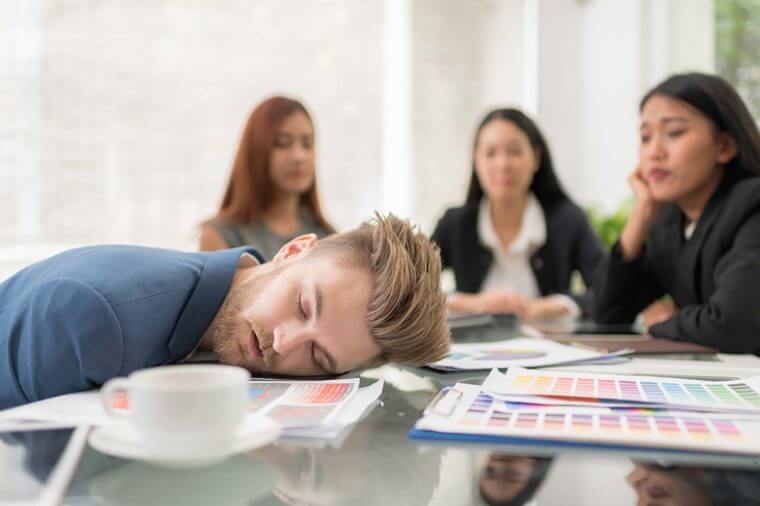You’re in a long meeting and someone is droning on about who-knows-what, and your eyelids start to get heavy. Maybe you stayed up too late the night before binge-watching Netflix or just maybe the topic is dreadfully dull. That alone will bring on the z’s, according to a new study.
You can try starting your day with energy-boosting foods, but according to findings from the University of Tsukuba, getting sleepy when we’re bored is a real thing.
The study, published in the journal Nature Communications, shows exactly how a bored brain gets tired: The nucleus accumbens, or the part of the brain that is associated with motivation and pleasure, can also produce sleep. When we’re not motivated by or pleased with our current surroundings, our brain is basically sending signals to fall asleep. But why? The Japanese-Chinese team that worked together on this study found that the nucleus accumbens neurons are so powerful that it’s almost impossible for us to separate their signals from those that prompt natural sleep, known as slow-wave sleep, which is characterized by slow and high-voltage brain waves.
Yo Oishi, the lead author on the study, said, “the classic somnogen adenosine is a strong candidate for evoking the sleep effect in the nucleus accumbens.” That means adenosine represents a state of energy deficiency and induces sleep via adenosine receptors. The study explains: “a specific subtype of adenosine receptors, the A2A receptors, are densely expressed in the nucleus accumbens. Caffeine, the most widely consumed psychostimulant in the world, produces its arousal effect also in the nucleus accumbens by blocking A2A receptors. Compounds that activate A2A receptors in the nucleus accumbens may open safe therapeutic avenues for treating insomnia, which is one of the most common sleep problems with an estimated prevalence of 10 to 15 percent in the general population and 30 to 60 percent in the older population.”
To get that jolt, we often turn to coffee, but sometimes it doesn’t do the trick. Patricia Salber, MD, founder of The Doctor Weighs In, suggests that “when coffee alone isn’t enough to keep you awake during boring meetings, I recommend getting up and standing, or better yet, walking back and forth in the rear of the room. If someone asks why you’re doing that, you can always mumble something about your back.” Better still, she adds, leave the room, head outside, and take in the sunshine. “It will increase your orexin levels, a neuropeptide that helps keep you wakeful. After 10 to 15 minutes, you can go back in and finish the meeting feeling much more alert.”
Sometimes, caffeine isn’t what we should be turning to at all. Dr. Jennifer Stagg says, “Instead of jumping to caffeine, low sugar-electrolyte formulas are my go-to for an energy boost, and staying optimally hydrated is important for energy, so making sure you spread your water intake throughout the day is ideal.”












